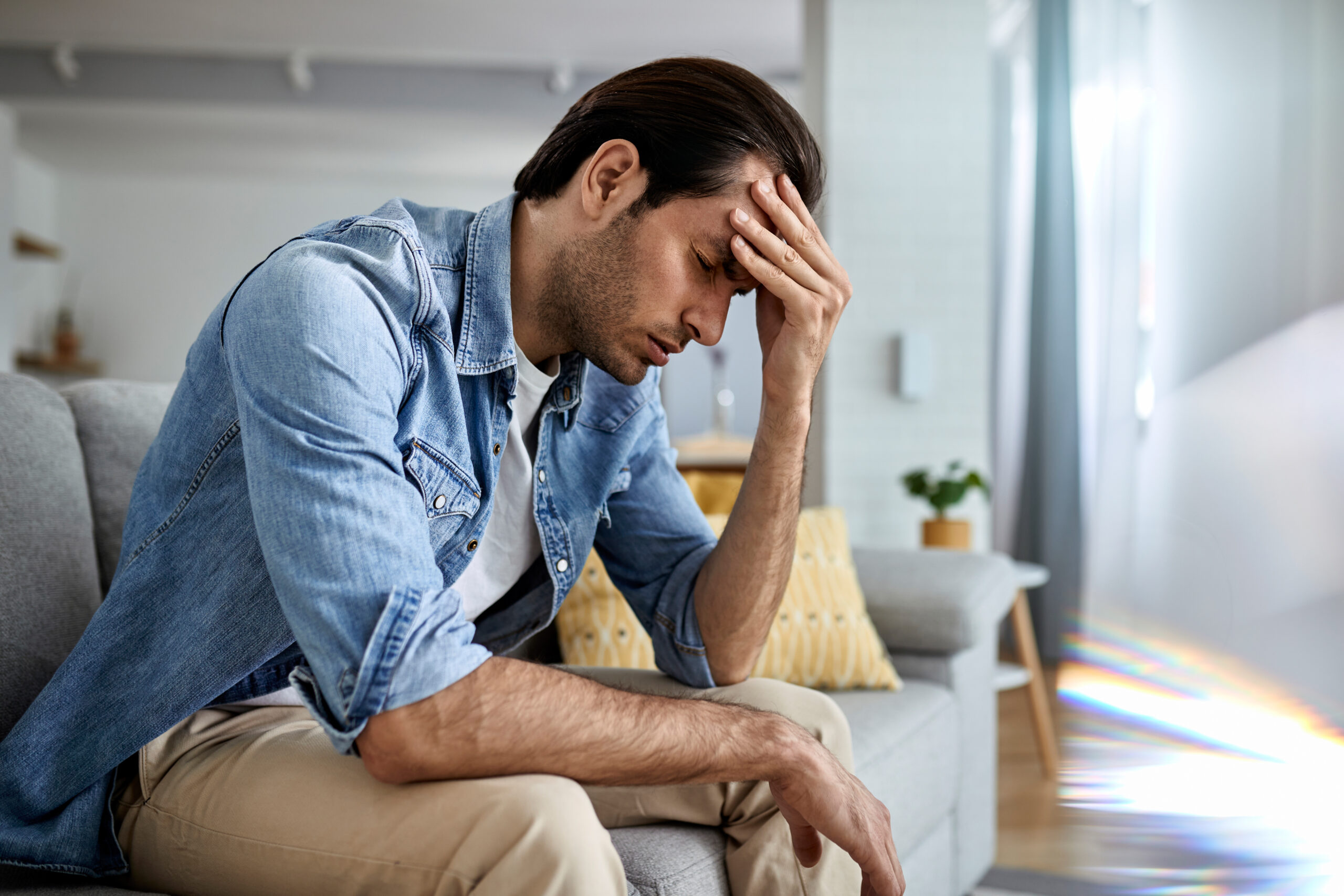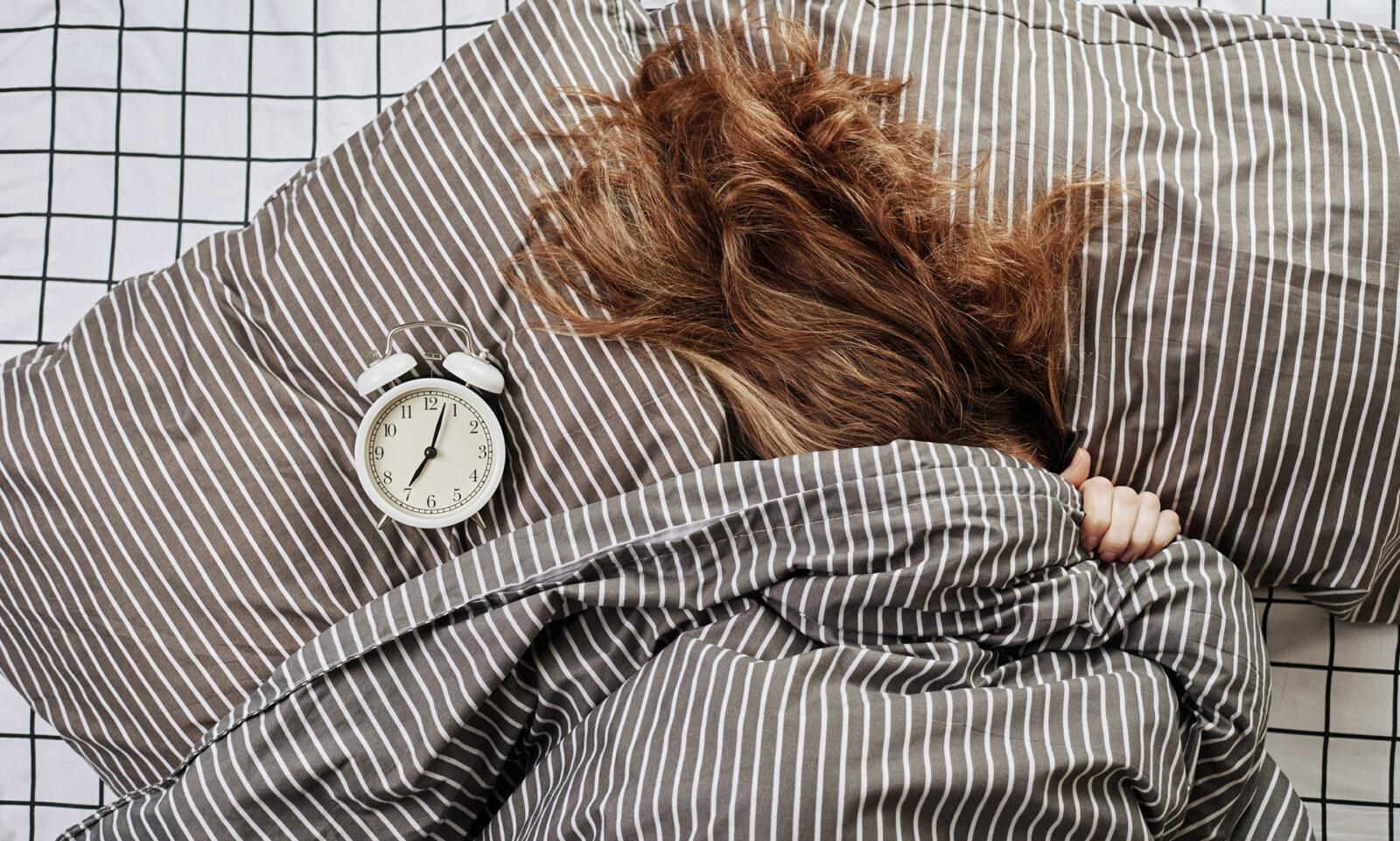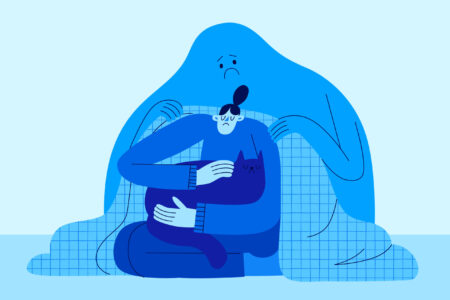It is normal to feel anxious or afraid about something from time to time. Anxiety can be triggered by a variety of situations, such as concerns about a health problem, financial situation, or performance. Moderate and transient anxiety is natural, helping us cope with threats and unpleasant situations.
Anxiety becomes an anxiety disorder when it affects daily life, is very severe, or lasts a long time. For example, an anxiety disorder can lead to avoidance of anxiety-provoking situations, affect close relationships, reduce quality of life, and cause sleep disturbances or changes in eating habits.
In compiling this blog post, we rely on scientific articles and treatment guidelines that have been prepared with funding from the Health Insurance Fund and coordinated by the University of Tartu.
Anxiety disorder symptoms
More common anxiety disorders
How to treat anxiety disorder?
Natural treatment
How to live with an anxiety disorder?
FAQ
Anxiety disorder symptoms
 Anxiety disorder symptoms can manifest themselves in different ways. Based on the treatment guidelines and MTÜ Peaasjad, we can summarize the possible psychological and physical symptoms of anxiety disorder:
Anxiety disorder symptoms can manifest themselves in different ways. Based on the treatment guidelines and MTÜ Peaasjad, we can summarize the possible psychological and physical symptoms of anxiety disorder:
- Psychological symptoms: strong and unreasonable fear of a situation or object, irritability, sleep disturbances, difficulty concentrating, difficulty controlling emotions, perfectionism, desire to control one's own or others' behavior, etc.
- Physical symptoms: shortness of breath, palpitations and rapid pulse, high blood pressure, body tremors or shaking, sweating, choking sensation, nausea, stomach discomfort, dizziness, numbness, hot and cold flashes, mild diarrhea, loss of appetite/eating, flushing, blushing, headache, chest pain, trembling, soft legs, etc.
- Fear of death, fear of losing control or going crazy, derealization, or a sense of detachment.
More common anxiety disorders
There are several types of anxiety disorders, such as:
- Health anxiety – excessive worry about one's health.
- Social phobia – an intense fear of situations where you have to perform or be under the attention of others. Sometimes it also leads to a more general fear of communication.
- Generalized anxiety disorder – characterized by constant anxiety, worry, and a feeling of tension in the body.
- Panic disorder – in addition to the usual symptoms of an anxiety disorder, it is characterized by the occurrence of intense anxiety attacks, a feeling of unreality, a fear of impending death, or a fear of losing control.
- Agoraphobia – a person fears and avoids situations from which escape may be difficult or where help may not be available.
- Post-traumatic stress disorder – a traumatic event that causes sudden flashbacks and nightmares, in addition to other anxiety symptoms.
- Obsessive-compulsive disorder – excessive anxiety accompanied by, for example, repetitive thoughts or behavioral patterns.
- Simple phobia – a person is afraid of a specific situation or object, such as heights, spiders, dogs, etc.
How to treat anxiety disorder?
Anxiety disorder is a mental health disorder and requires the same attention and cooperation with a doctor as physical health disorders. If you experience any symptoms of anxiety disorder that affect your ability to cope with everyday life, you can contact various specialists with your concerns: a psychiatrist, family doctor, mental health nurse, family nurse, psychologist or psychotherapist. Depending on the situation, psychotherapy and/or medication may help. It is also important to increase awareness of the disease and learn self-help techniques with the advice of a doctor or nurse or independently. Self-help books can be helpful when working on your own, such as EJ Bourne's "Anxiety Disorders and Phobias Handbook" and A. Ellis's "How to Overcome Your Anxiety."
It is often most effective to combine psychotherapy with medication to relieve anxiety. Psychotherapy uses psychological treatments to help create changes in thinking, feelings, and behavior that are necessary for recovery. The most common and evidence-based method for treating anxiety disorders is cognitive behavioral therapy.
In addition, it is important to find a balance between rest and work, engage in hobbies and other enjoyable activities, and pay sufficient attention to for a complete diet and sleep quality. We have covered the topic of sleep and sleep deprivation in a previous blog post..
Medications
Antidepressants are most often used in the treatment of anxiety disorders. The duration of the treatment course is at least six months. In certain situations, sedatives (not more than 4-8 weeks) or sleeping pills are also used for a short time. If the medications are accompanied by a permanent and significantly disturbing side effect, it is worth consulting your doctor, who can change the treatment regimen if necessary and possible.
Natural treatment
There are people who, in collaboration with their doctor, have decided to try natural treatments and have received sufficient support from them in treating anxiety disorders and the sleep disorders that often accompany them. One of the most common natural remedies for anxiety disorders is valerian. For example The study by N. Shinjyo et al. (2020) confirmed, that valerian may be a safe and useful natural remedy for treating sleep problems, anxiety, and related comorbidities.
How to live with an anxiety disorder?
Living with anxiety can be difficult, but anxiety is a partially or fully treatable and manageable condition. With a conscious approach, we can significantly influence how we feel and often even become free from anxiety.
The main thing on the website (NGO Main Affairs) and On the treatment guide website There are many practical suggestions and exercises that can help relieve anxiety and cope with panic attacks.
Dealing with anxiety through relaxation exercises:
- Calm, slow, and deep breathing helps the body relax and is a very effective way to relieve anxiety.
- You can try controlling your breathing through abdominal breathing. To do this, take a deep breath and direct the air into your abdomen so that your stomach rises when you inhale and falls when you exhale.
- It is said that breathing exercises that include meditation can help. As you breathe in, you say to yourself one (and so on up to ten) and exhaling peace etc. a soothing word.
- Awareness or mindfulness The exercises can supposedly help you feel your body better and be more aware of your present-day feelings, body sensations, and the surrounding environment.
- It is also recommended to learn to relax your muscles. To do this, you can tense your entire body for a moment and then quickly exhale to release the muscles. In a similar exercise, you need to focus on each part of the body in turn, tensing it and then relaxing it again.
- Some people may find visualization, or thinking about situations and places that create calm and relaxation, helpful.
Dealing with anxiety through thought control:
- When an anxious thought occurs, you can challenge it in your mind and reevaluate it. For example, you can reassure yourself, “This is just a random and strange thought and I can let it go.” So it’s good to notice your thoughts and question yourself about the anxious thought, for example, “What evidence supports the truth of my thought?” You can then reevaluate your thoughts, for example, “How likely is the feared scenario?”
- You can also try coping cards. You can carry notes with you that have helpful phrases written on them during a panic attack or anxiety attack, such as “I can handle it,” “This won’t last forever.”
- In the event of a panic attack, the first thing to do is to ensure your own safety and that of others, if necessary. For example, if you have a panic attack while driving, you should park your car safely. During a panic attack, it is worth remembering that the attack will pass and is not life-threatening. You can focus on the objects around you and challenge your fearful thoughts.
- If frequent worrying interferes with daily life and problem-solving, developing problem-solving skills and implementing the “worry time” technique can help. This means that you can worry during a specific time of day.
Dealing with anxiety through attention redirection:
- Five Senses Exercise: I list 5 things I see/hear/touch/smell/feel.
- If the anxiety doesn't go away, you can try changing your activities and location.
- Writing your thoughts in a journal or talking about your feelings with a trusted and supportive person can also be helpful.
FAQ
What causes anxiety disorder?
The cause of anxiety disorders is likely a combination of genetic factors, brain chemistry, and environmental influences and negative events.
Can anxiety disorder be treated?
Anxiety disorder is considered a treatable and rather treatable mental health condition. The earlier you seek medical attention, the faster and more effective the treatment will be.
How does anxiety disorder manifest itself in a child?
It is sometimes difficult to recognize and understand a child's anxiety. The manifestations of anxiety can vary greatly, for example, there may be difficulty sleeping and eating, headaches and stomachaches, crying, keeping to oneself, anxiety attacks in unsafe situations, etc.
How are depression and anxiety related?
Depression and anxiety often occur together, as one can easily trigger the other. When a person is anxious, they tend to think about their worries and problems. This can lead to feelings of low self-esteem and failure, which can lead to depression. When people are depressed, they often feel anxious or worried, which can lead to an anxiety disorder.
How long does anxiety and anxiety disorder last?
The duration of anxiety is individual and depends on various factors, such as the situation that causes anxiety and the cause of the anxiety. In some cases, anxiety can be short-term, lasting only a few minutes or hours. It can be related to specific events or situations. In other cases, anxiety can be chronic, lasting for weeks, months, or even years. In this case, it may be an anxiety disorder, which can have a significant impact on a person's daily life and overall well-being.
Summary
Anxiety disorders are very common and, according to various studies, affect approximately 10–28% of people. The symptoms of anxiety disorders and the treatments that alleviate them can vary greatly from person to person. Therefore, it is recommended to consult a specialist if in doubt. Anxiety disorders can be largely treated with various treatment methods, and thus it is possible to become free from anxiety or discover ways to live life with anxiety disorders as fully as possible.

Vallo Põldaru
TrainerVallo is a marketer by profession, a specialist in human internet behavior, and a trainer whose favorite topics are marketing psychology, spiritual care, and sustainable mental health in today's society.
Dopamine – happiness or addiction?





